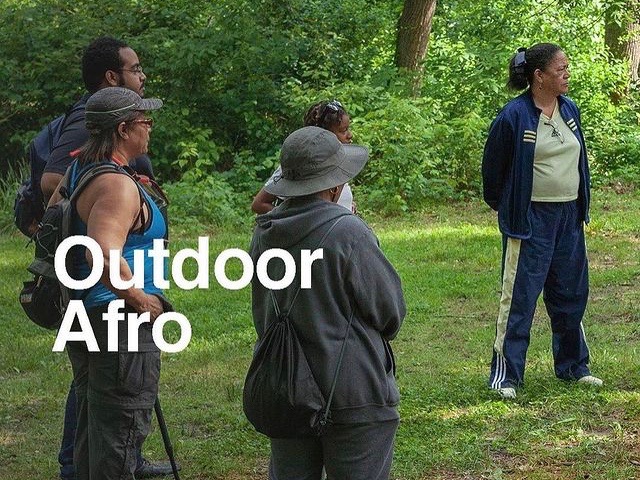Image souce @outdoorafro
This Black History Month, we invite you to learn more about and support intersectional environmentalism through the work of Black-led environmental organizations that address issues of transportation, housing, pollution in BIPOC (Black and Indigenous People of Color) communities, food oppression, public health concerns, as well as climate policy as a whole.
- Outdoor Afro is a fantastic national nonprofit that highlights Black leaders in the world of nature, while connecting Black people to outdoor experiences nationwide, organizing group hikes, bike rides, and other awesome outdoor group activities. Donating to the organization provides funds to make these group activities possible.
- Organizing People Activating Leaders (OPAL) Environmental Society is a Portland, Ore.-based grassroots organization that focuses on getting Black, Indigenous and People of Color (BIPOC) youth involved with organizing for change. It started with speaking out against outdoor and indoor quality concerns for people in marginalized communities, but later moved beyond that, focusing on transportation, housing, land use, and public health concerns, as well as climate policy as a whole.
- Afro Vegan Society, however, is a national nonprofit that provides resources, information, and support to people in these communities, to help those interested transition to a vegan lifestyle for the sake of their health and the environment.
- Hip Hop Caucus educates voters and advocates for climate action from the BIPOC perspective. Unfortunately, BIPOC communities are disproportionately affected by climate issues, namely because the government and corporations tend to erect factories and other harmful facilities that produce air and water pollution in those areas.
- Project Eats grows fresh food for neighborhoods low-income BIPOC neighborhoods where fresh, nutritious food is unaffordable or nearly impossible to find.
- The Sunrise Movement is a national nonprofit organization that encourages young people to get involved with advocating against climate change. A diverse leadership helps the group focus on intersectionality, as they push for important movements such as the Green New Deal and other more direct environmental policies.
- Generation Green is an organization that focuses on amplifying the voices of young Black climate activists. The group provides a variety of nationwide programs to encourage Gen Z organizers to get involved with the fight against global warming, to engage their communities, and to potentially find a career in the world of environmental justice.
- Black Dirt Farm Collective is a group composed of Black farmers, educators, scientists, agrarians, seed keepers, organizers, and researchers. Together, they advocate for intersectional and sustainable agricultural practices, agricultural education, food justice, and land justice.
- Intersectional Environmentalist is completely dedicated to teaching the masses about the intersection of environmental justice and racial justice. It simultaneously advocates for protecting both the people and the planet, and identifying the ways in which environmental justices affect BIPOC communities. Donations are allocated towards building a digital community based on education, and paying BIPOC writers for personal essays and other articles of the like.
Thank you to Green Matters for compiling this list.

